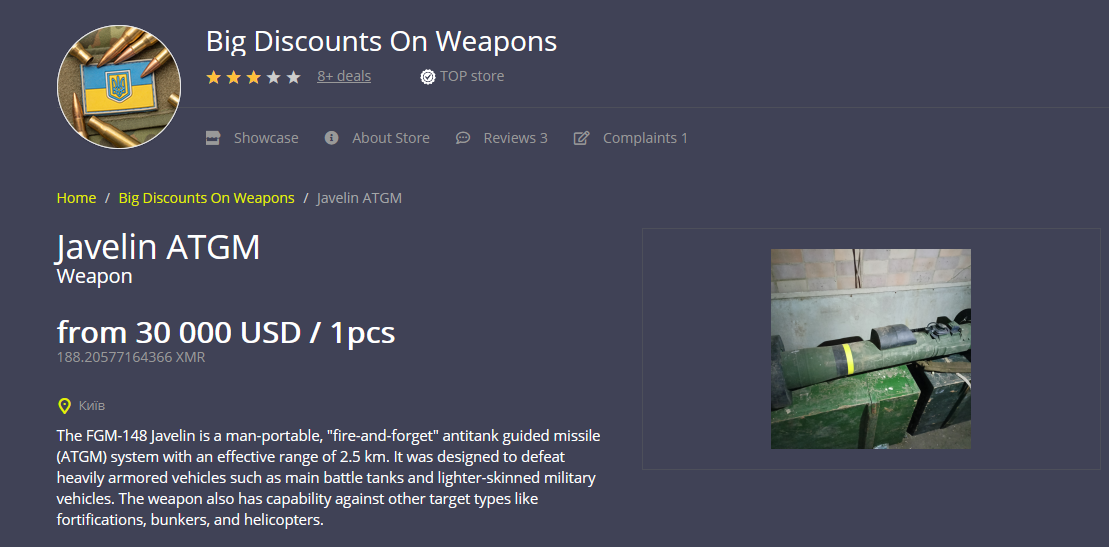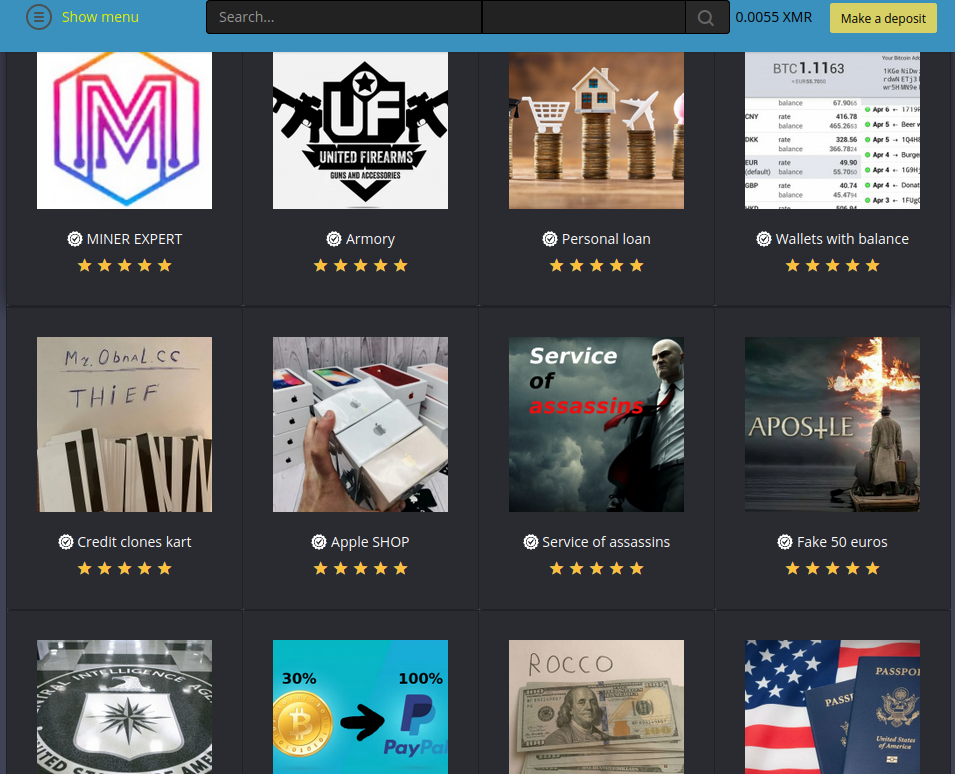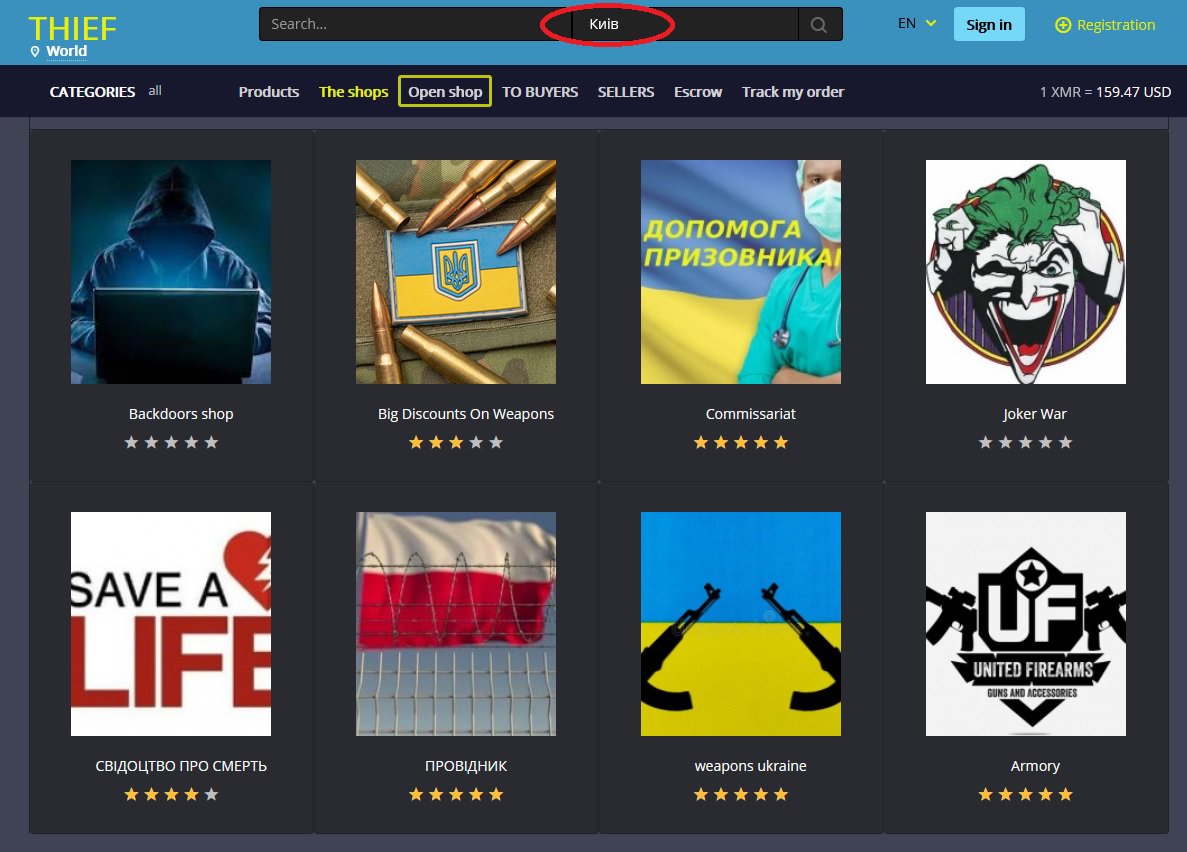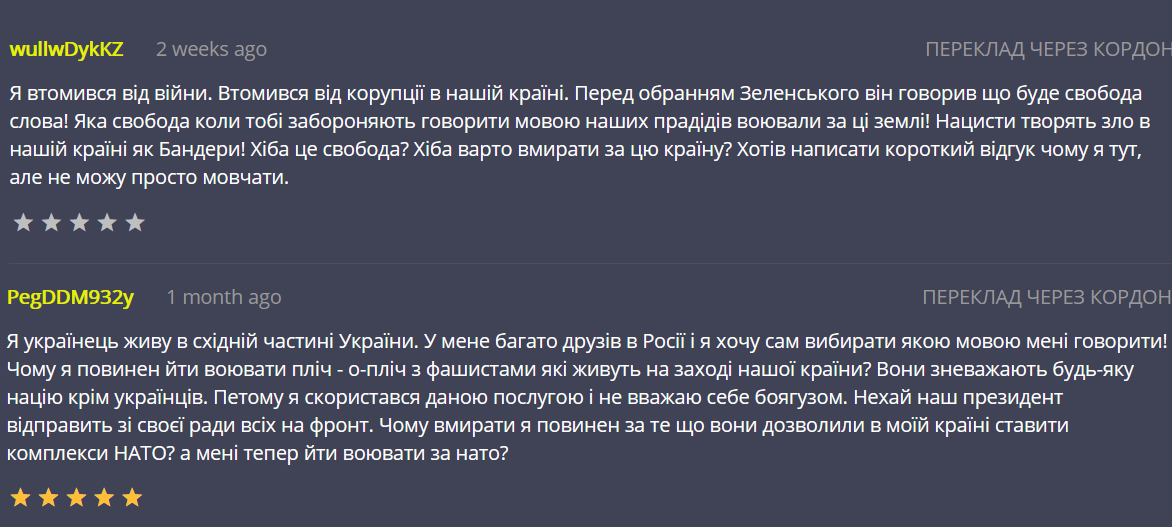The Russian "investigations" of Western weapons allegedly sold on the black market were based on screenshots of advertisements allegedly offering to purchase the anti-tank weapon systems FGM-148 Javelin and other American-made weapons on the darknet. These are a group of anonymity networks that require special software and, besides the intended legal use, can often be used by criminals to sell illegal digital or physical items.

Initially, a number of Telegram channels run by Russian propagandists started to spread such screenshots almost simultaneously, then Russian propaganda websites circulated them. Finally, English-language resources of various far-right and far-left anti-globalists, conspiracy theorists, and simply "truth fighters" started spreading the screenshots of the alleged darknet ads.
Back in June, when the screenshots from an alleged darknet marketplace first appeared on Russian propaganda resources, Mirror suggested that the screenshots shared by the propagandists "may be fake and part of a Russian propaganda campaign to halt the West funnelling arms to Ukraine’s defenders."
The first mentions of the marketplace in question that Euromaidan Press could trace appeared in 2018, then in 2021, it had a number of illegal offers yet none was related to Ukraine, according to one of the site's screenshots:

Why the Russian darknet marketplace is fake
The Russian propagandists took a thorough approach to the launch of the disinformation campaign as they used a darknet web resource that imitates a real marketplace allegedly selling banned products and shady services.
According to Danish cyber security researchers from Aalborg University, just like trading on the regular web, trading on the darknet is primarily based on trust, and for achieving the required trust level, the owners of marketplaces use a number of techniques that help buyers and sellers make sure that they won't get scammed:
"[Darkweb marketplaces] present mechanisms, such as vendor reputation systems, escrow, communication encryption (e.g. PGP), review systems, integrated forum sections with discussions, and customer support functions, all of which aim to build a chain of trust between the buyers, sellers and the marketplace owners," the paper reads.
First of all, a darknet marketplace must be well-known. There are not so many sites for illegal trade and many catalogs on the regular Internet list their names, descriptions, and links to them. Texty found mentions of the Russian darknet site only on one hastily made website, which has almost no links to other well-known marketplaces. Other mentions of the site emerge on a number of cloned
web pages looking like SEO spam and on several more mostly Russian-language pages.
The owners of real marketplaces use CAPTCHAs to protect their darknet sites from DDoS attacks and the automated collecting of data from their resources. These checks are much more sophisticated than on the regular Internet - the owners of darknet marketplaces offer their users riddles, puzzles, mini-games, and mathematical equations - often several questions at a time. There is none of these on the Russian platform. Finally, real marketplaces use secure PGP protocols. This protects users from fraud and verifies the authenticity of the platform. Again, the Russian mock marketplace doesn't use the protection of this kind.
Fake "Ukrainian weapons black market" shop busted by terrible grammar
Despite the lack of normal darknet protection techniques, the Russian fake marketplace has a rather high-quality look and feel. It has sections with instructions for sellers and buyers, a registration form, and alleged reviews from users of the platform. To an inexperienced visitor who came here to verify information about the sales of Western weapons by Ukrainians, it may seem like a real darknet marketplace.
"But Russians wouldn't be Russians if they hadn't given the game away by trying to write in Ukrainian"
Several shops discrediting Ukraine are registered on the Russian darknet site. Their geographical location is marked as "Kyiv." Three of them ostensibly sell weapons, two offer forging the military documents to dodge mobilization, and one more can apparently provide secret documents of the Armed Forces of Ukraine.

However, the most hilarious service is offered by the PROVIDNYK ("guide") store, where you can allegedly purchase the "TRANSLATION ACROSS THE BORDER" for about $15,000, which actually is a bad machine translation from Russian into Ukrainian of the "cross-border transfer/transportation" i.e. an offer to illegally cross the Ukrainian border, which is closed to military-capable Ukrainian males.
Reviews allegedly published by the customers of PROVIDNYK are written in bad Ukrainian. The alleged "customers" complain about the Nazi government in Ukraine, confess their love for Russia, and don't want to fight for NATO.
"It's not freedom when you are not allowed to speak in the [Russian] language of our grandparents who fought for these lands," ostensibly the website's client wullwDykKZ
writes in Ukrainian, echoed by another website user PegDDM932y who writes, also in Ukrainian, that he's from Ukraine's east and "I have a lot of friends in Russia and I want to choose myself what language I should speak." Both repeat Russian propaganda narratives saying that they don't want to fight alongside "fascists"/"nazis," and a mistype in the original Russian text betrays the machine translation in the second comment where instead of the Ukrainian тому 'because' there is петаму - the mistyped Russian потому).
Read also:
- Taken out of context: CBS documentary claims on Ukrainian military aid going missing debunked
- Russian media forge more papers to blame Ukraine of downing MH17, make bad grammar mistakes


